Yellowing Rose Of Sharon Leaves – Why Rose Of Sharon Has Yellow Leaves
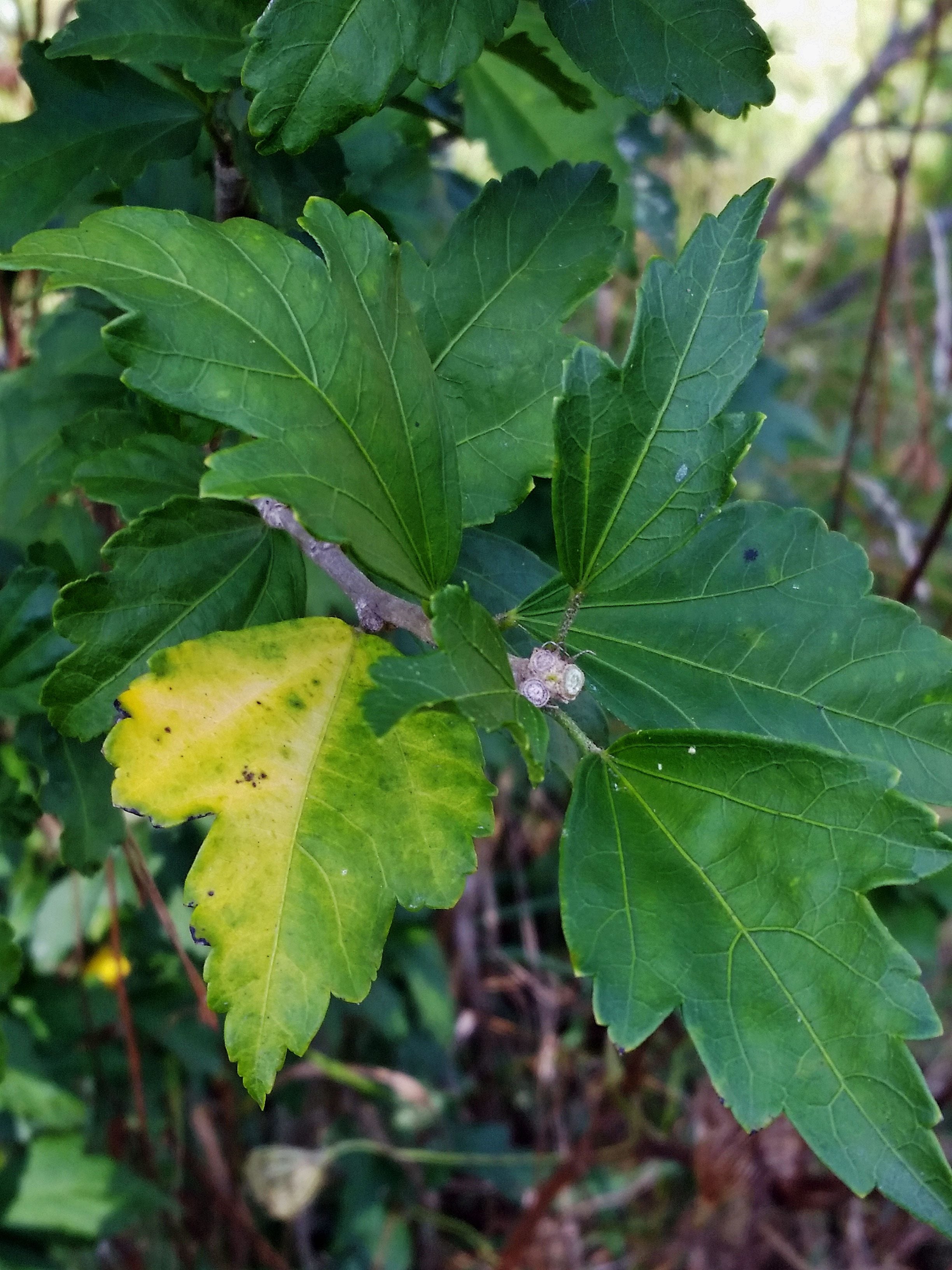

Rose of Sharon is a hardy plant that usually grows in difficult growing conditions with very little maintenance. However, even the toughest plants can run into trouble from time to time. If you notice your rose of Sharon has yellow leaves, you’re understandably perplexed about what has befallen this trusty late summer bloomer. Read on to learn a few of the most common reasons for rose of Sharon leaves turning yellow.
What Causes Yellow Leaves on Rose of Sharon?
Poorly drained soil is one of the primary reasons for rose of Sharon leaves turning yellow. The moisture can’t drain effectively, and soggy soil suffocates the roots, which causes drying and yellowing rose of Sharon leaves. You may need to move the shrub to a more suitable location. Otherwise, improve drainage by digging a generous quantity of compost or bark mulch into the soil. Similarly, overwatering may be the culprit when leaves turn yellow on rose of Sharon (especially when overwatering is compounded by poorly drained soil). Allow the top 2 to 3 inches (5-8 cm.) of soil to dry, and then water deeply enough to soak the roots. Don’t water again until the top of the soil is dry. Watering in the morning is best, as watering late in the day doesn’t allow sufficient time for the leaves to dry, which may invite mildew and other moisture-related diseases. Rose of Sharon is relatively pest resistant, but pests such as aphids and whiteflies may be a problem. Both suck the juices from the plant, which can cause discoloration and yellowing rose of Sharon. These and other sap-sucking pests are usually easily controlled by regular applications of insecticidal soap or horticultural oil. Remember that a healthy tree, properly watered and fertilized, is more resistant to infestation. Chlorosis is a common condition that frequently causes the yellowing of shrubs. The problem, caused by insufficient iron in the soil, is usually ameliorated by applying iron chelate according to label directions. Inadequate fertilization, especially lack of nitrogen, may be the cause for rose of Sharon leaves turning yellow. However, don’t overdo it, as too much fertilizer can scorch the foliage and cause yellowing. Excessive fertilizer can also burn the roots and damage the plant. Apply fertilizer only to moist soil, and then water well to distribute the substance evenly.
Gardening tips, videos, info and more delivered right to your inbox!
Sign up for the Gardening Know How newsletter today and receive a free copy of our e-book "How to Grow Delicious Tomatoes".

A Credentialed Garden Writer, Mary H. Dyer was with Gardening Know How in the very beginning, publishing articles as early as 2007.
-
 Looking For Plants To Give You The Soft And Fuzzies? Try These 5 Fuzzy Leaf Plant Options
Looking For Plants To Give You The Soft And Fuzzies? Try These 5 Fuzzy Leaf Plant OptionsLovers of texture, drama, silver foliage and tactile plants will adore these special sensory garden additions. These fuzzy leaf plant options will leave you all aglow
By Susan Albert
-
 Get Ready For A Summer Of Hummers! Grow These Full Sun Hummingbird Plants and Flowers
Get Ready For A Summer Of Hummers! Grow These Full Sun Hummingbird Plants and FlowersIf you’re lucky enough to enjoy a sunny backyard, make sure you are maxing out on your pollinator opportunities and grow these full sun hummingbird plants and flowers
By Tonya Barnett
-
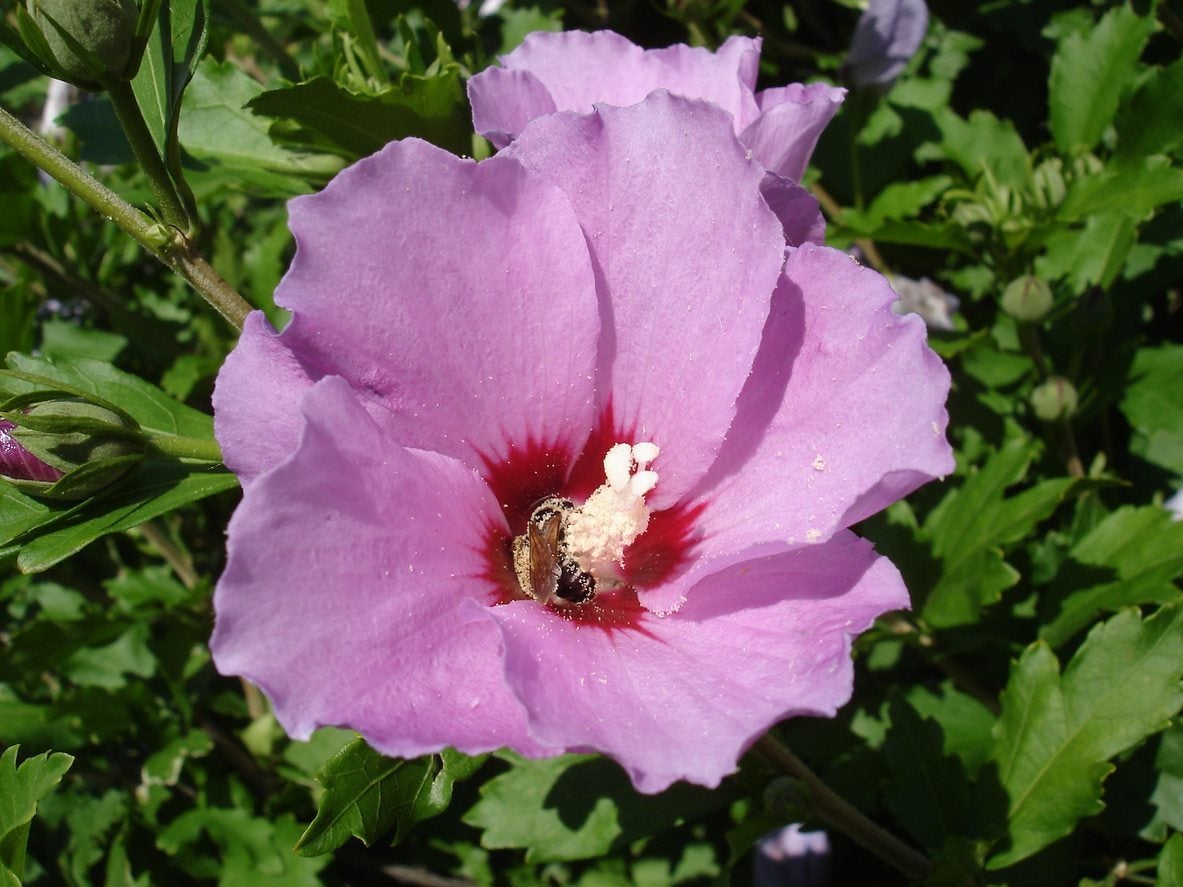 Rose Of Sharon Problems - Dealing With Common Althea Plant Issues
Rose Of Sharon Problems - Dealing With Common Althea Plant IssuesRose of sharon, or althea shrubs as they are commonly called, are usually low maintenance, reliable bloomers in zones 5-8. However, like any other landscape plants, rose of sharon can experience problems with specific pests or diseases. Learn more here.
By Darcy Larum
-
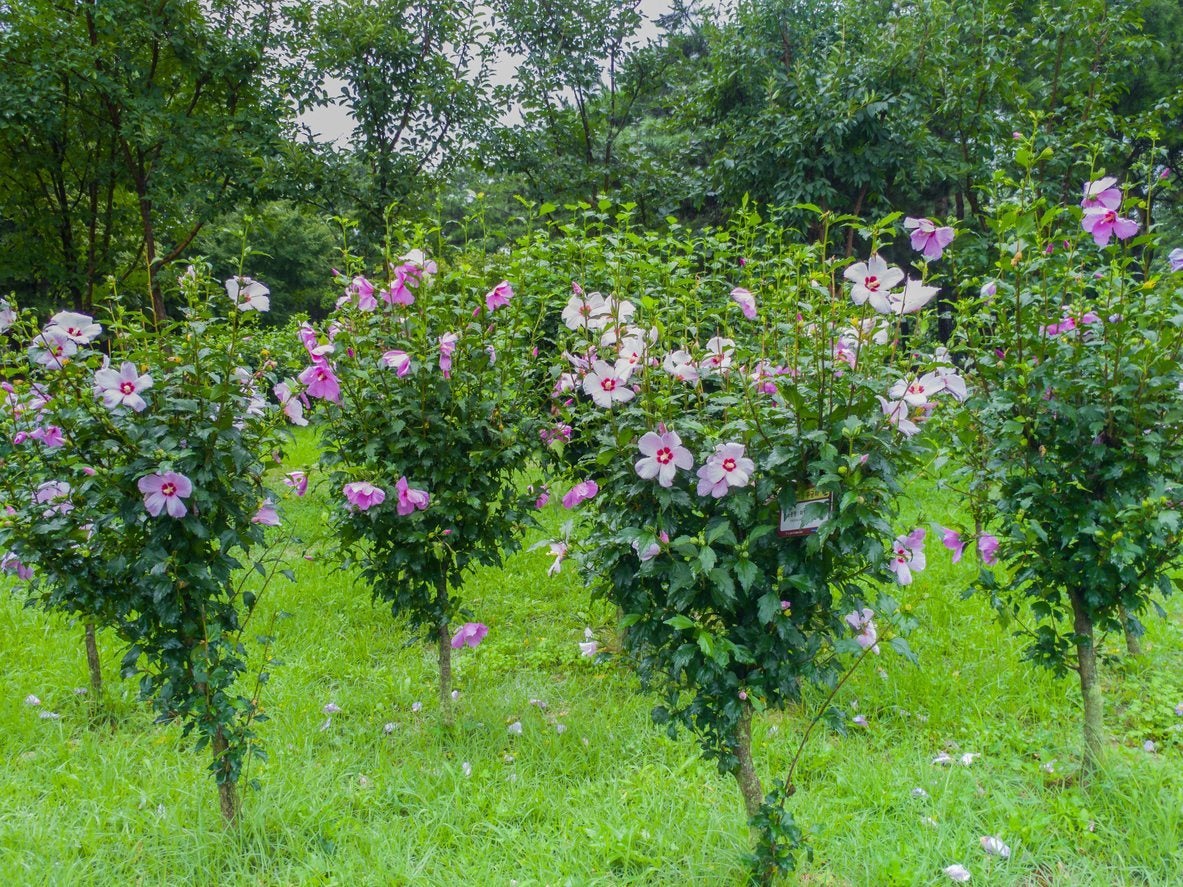 Rose Of Sharon Fertilizer Guide: Learn How To Feed An Althea Plant
Rose Of Sharon Fertilizer Guide: Learn How To Feed An Althea PlantSometimes, as gardeners, the things we do to try to help our plants can actually harm them. For example, rose of sharon shrubs can be very sensitive to over-fertilizing. Learn how to fertilize an althea shrub correctly in this article.
By Darcy Larum
-
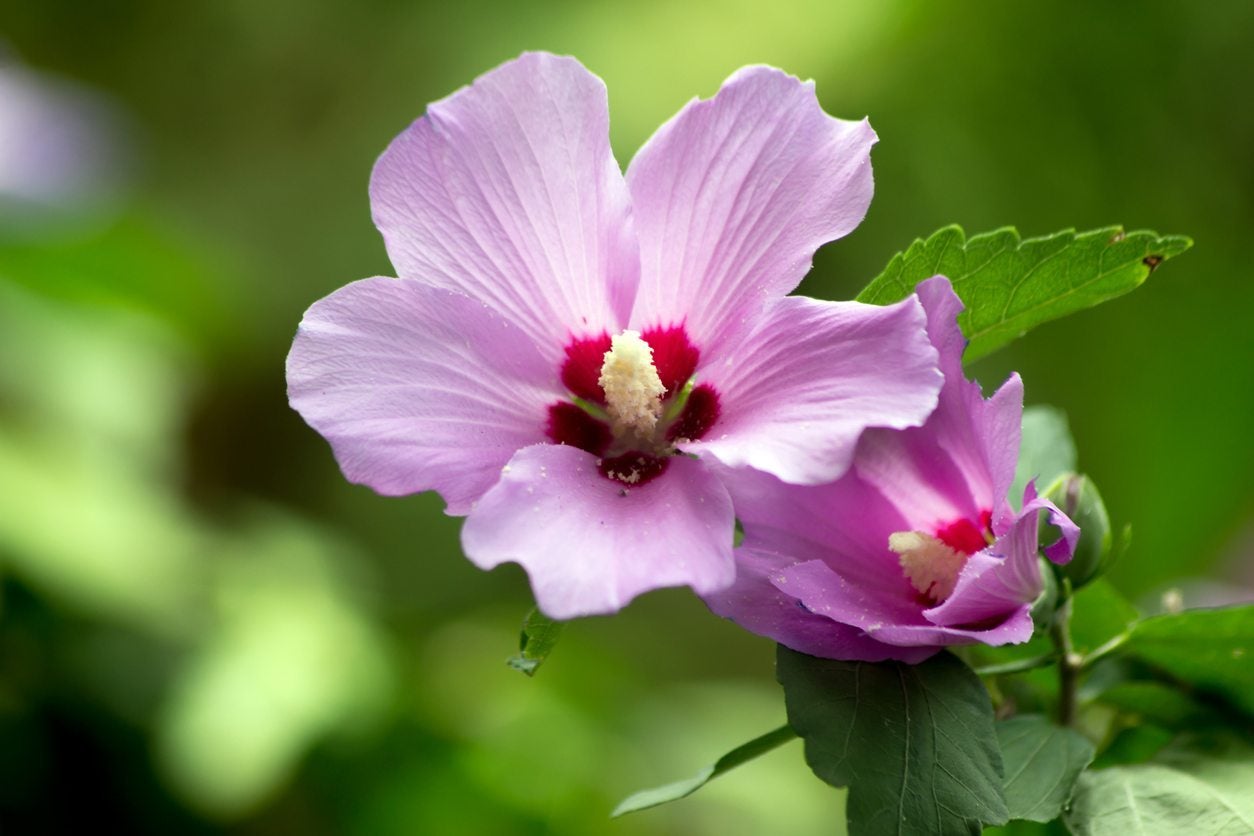 My Rose Of Sharon Is Not Blooming – Reasons For No Rose Of Sharon Flowers
My Rose Of Sharon Is Not Blooming – Reasons For No Rose Of Sharon FlowersA rose of sharon without blossoms is just a nice shrub. If you aren?t seeing any flowers on your rose of sharon, there is likely a simple problem that can be solved, although it may not be until next year that it blooms again. Learn more in this article.
By Mary Ellen Ellis
-
 Rose Of Sharon Winter Care: Preparing Rose Of Sharon For Winter
Rose Of Sharon Winter Care: Preparing Rose Of Sharon For WinterRose of sharon is usually planted in the ground but it can also be grown in containers as a lovely patio plant. Whether in containers or the ground, winter care for rose of sharon may be required. Learn more about overwintering rose of sharon here.
By Darcy Larum
-
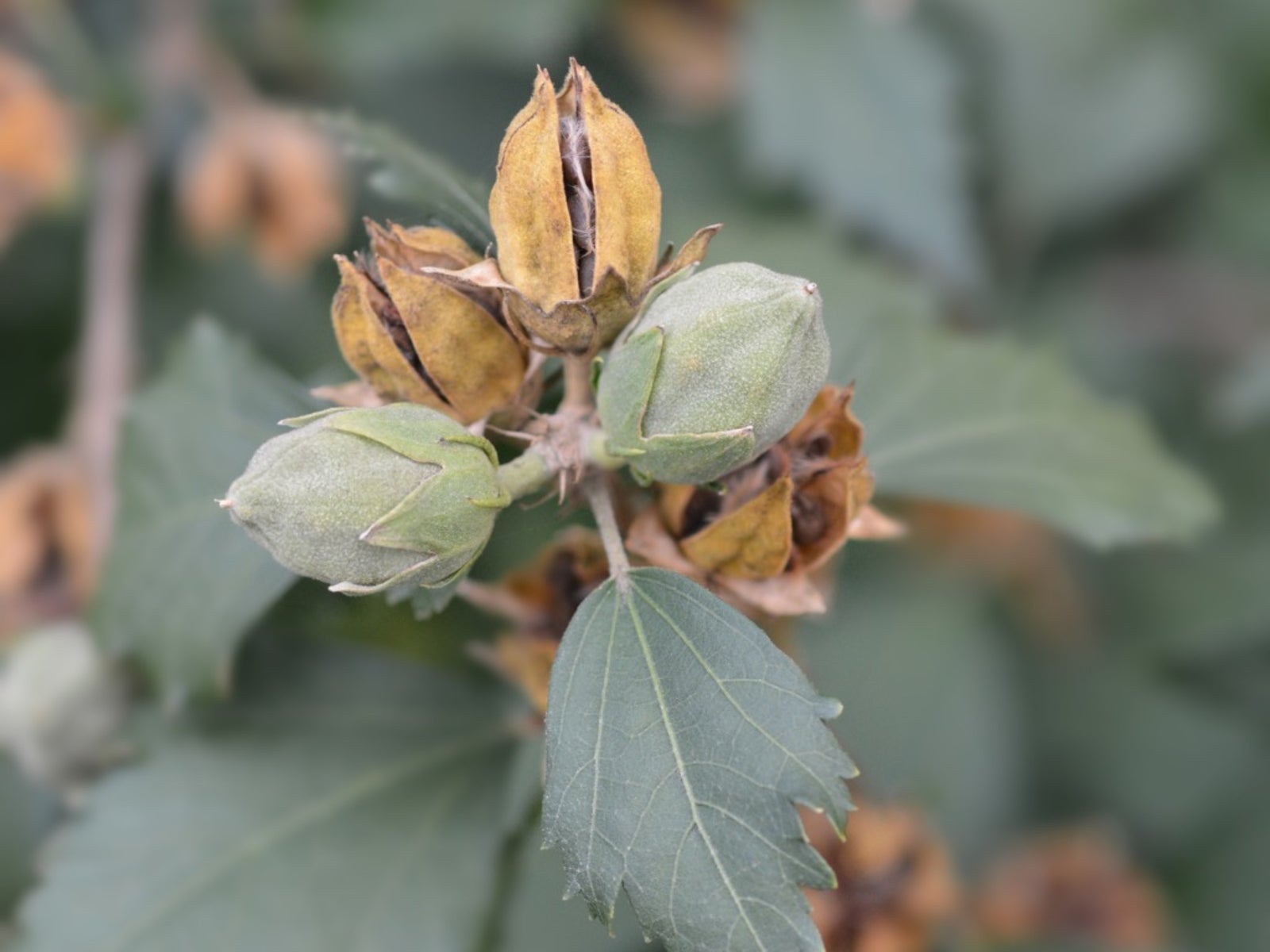 Rose Of Sharon Seed Propagation: Harvesting And Growing Rose Of Sharon Seeds
Rose Of Sharon Seed Propagation: Harvesting And Growing Rose Of Sharon SeedsAlthough rose of sharon commonly reseeds itself, if you're interested in growing your own plants, it is possible to harvest rose of sharon seeds for growing. Learn how to harvest rose of sharon seeds for propagation in this article.
By Darcy Larum
-
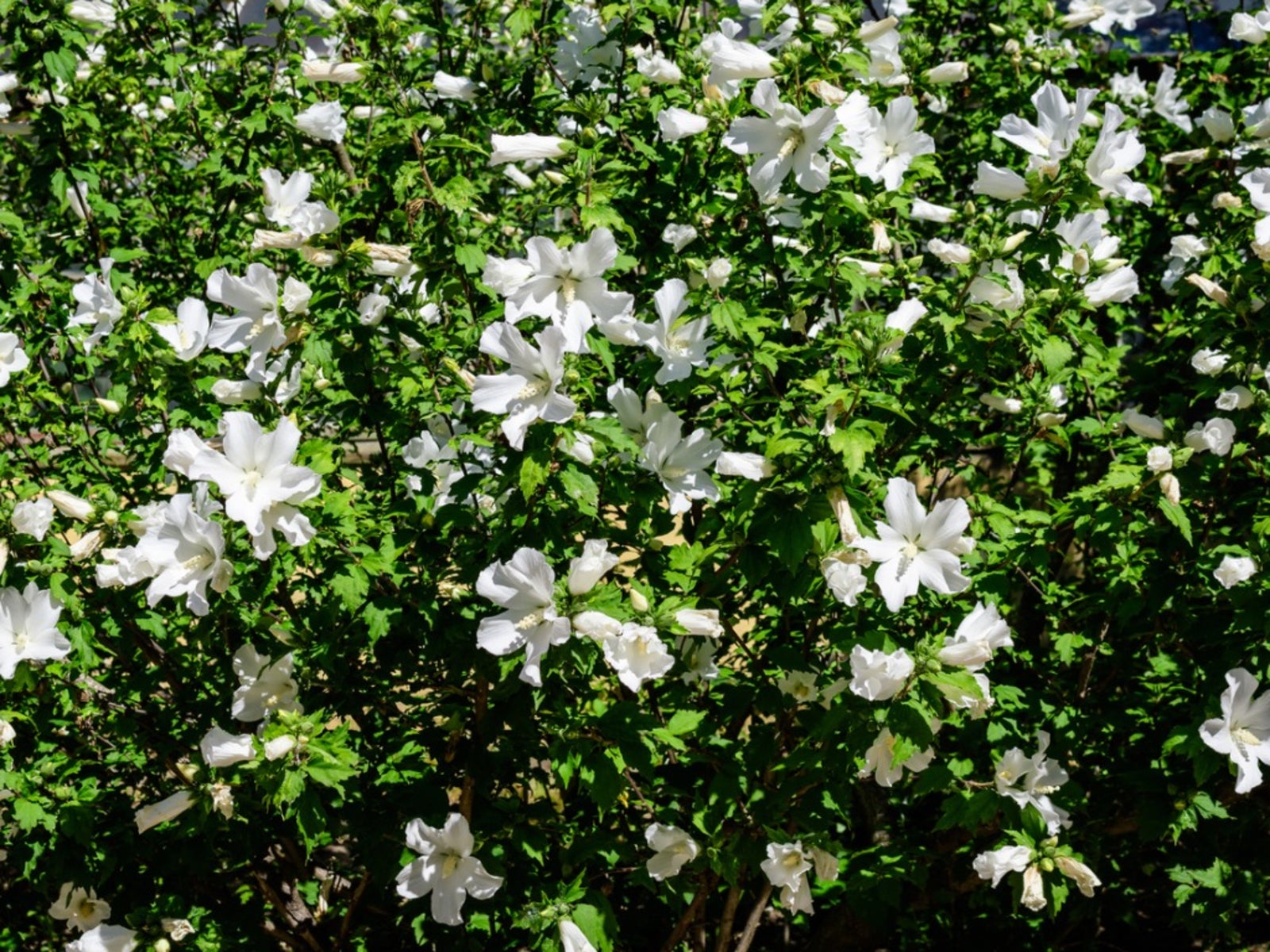 Is Rose Of Sharon Invasive – How To Control Rose Of Sharon Plants
Is Rose Of Sharon Invasive – How To Control Rose Of Sharon PlantsWhen you want to learn how to control rose of Sharon, remember that prevention is always easier than cure. Click here for tips on limiting rose of Sharon growth rate and what to do if your rose of Sharon is out of control.
By Teo Spengler
-
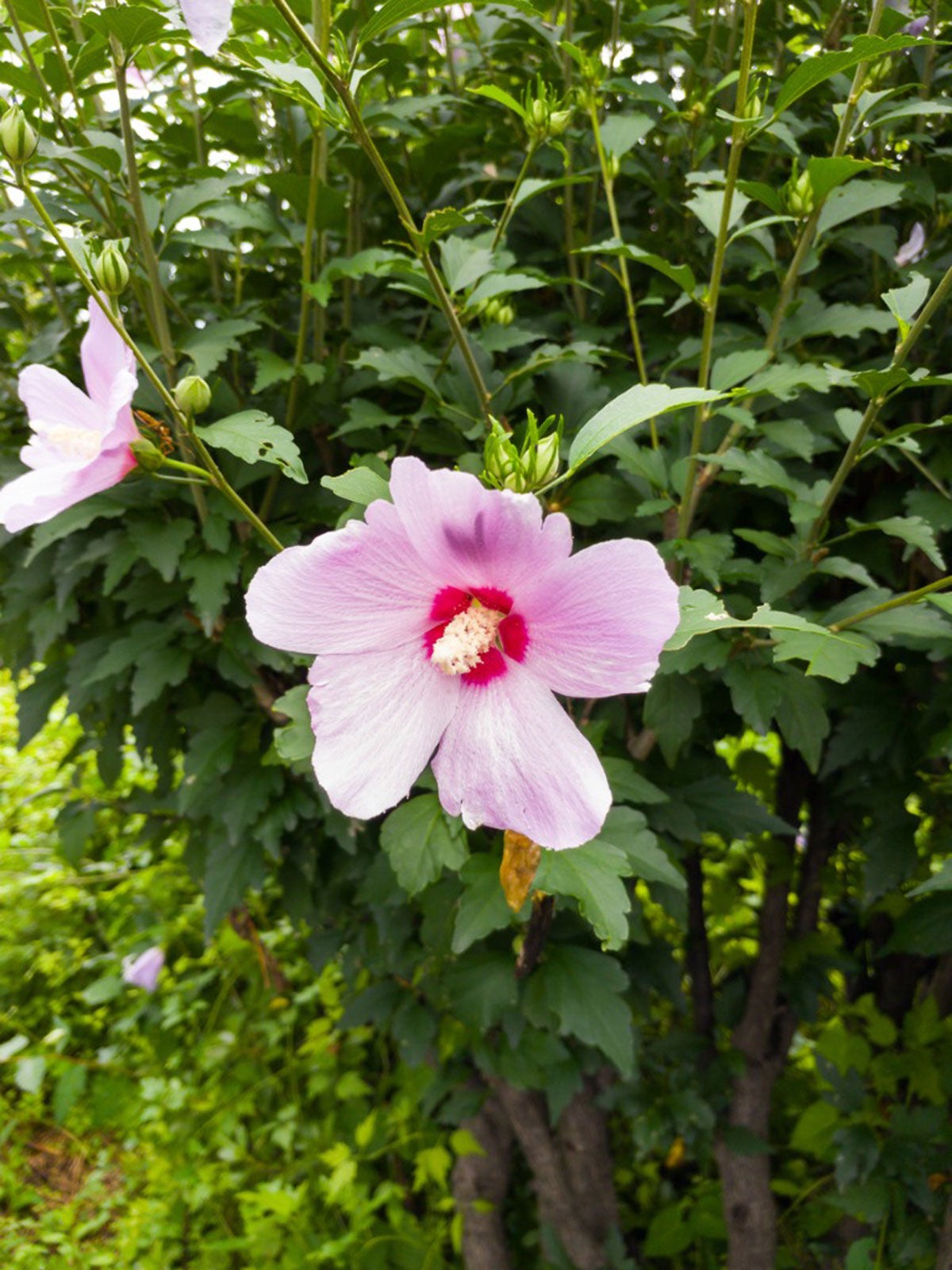 Moving Rose Of Sharon – How To Transplant Rose Of Sharon Shrubs
Moving Rose Of Sharon – How To Transplant Rose Of Sharon ShrubsWith a stiff, upright habit and open branches, rose of Sharon works in both informal and formal garden arrangements. Transplanting a rose of Sharon shrub is not difficult. Click this article for tips on how and when to transplant this shrub.
By Teo Spengler
-
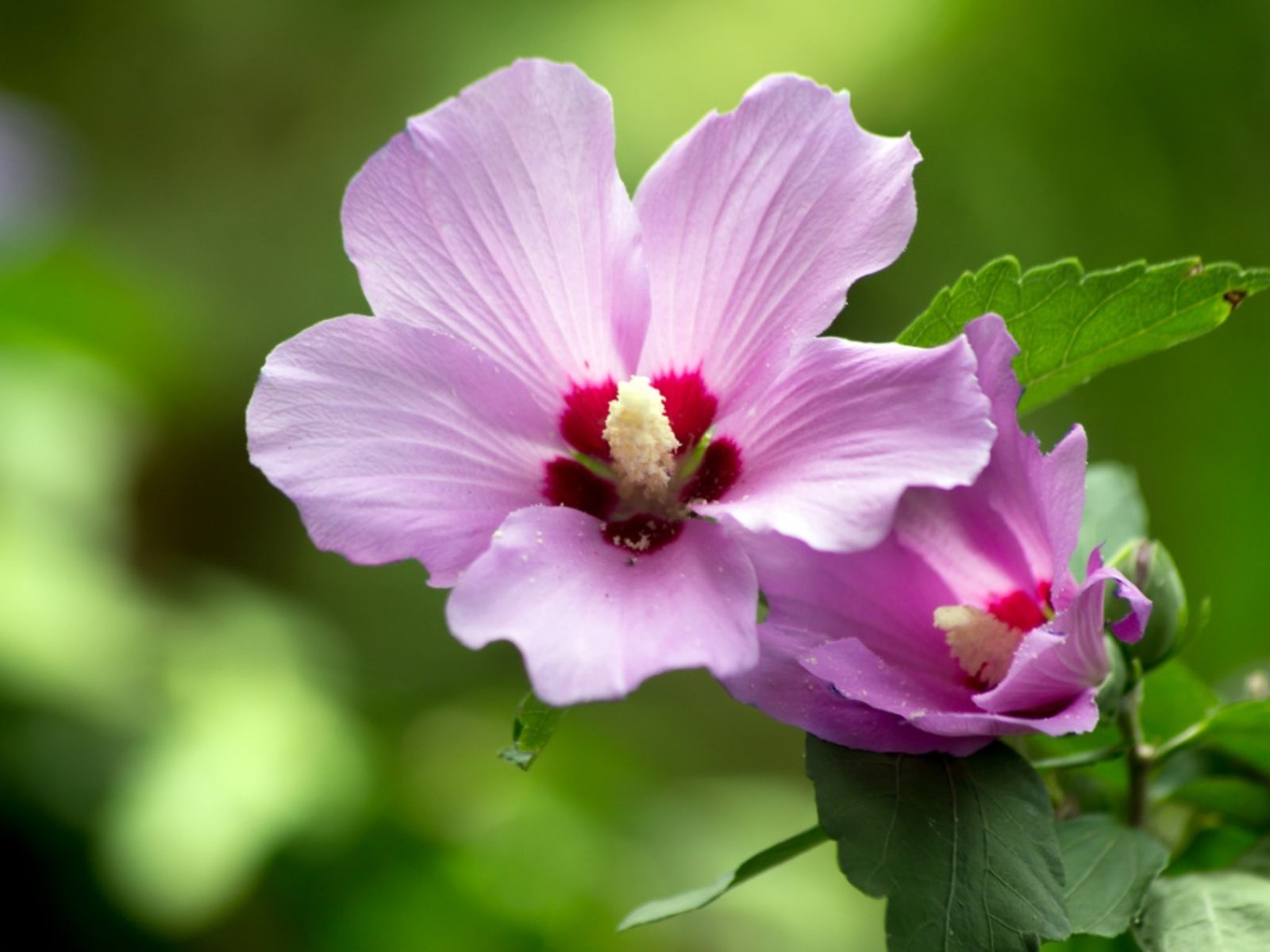 Rose Of Sharon Companion Plants: What To Plant Near To Rose Of Sharon
Rose Of Sharon Companion Plants: What To Plant Near To Rose Of SharonBecause rose of Sharon is rather uninteresting for much of the season, selecting plants that grow well with it can help. This article provides a few great rose of Sharon companion planting ideas. Click here for more information.
By Mary H. Dyer